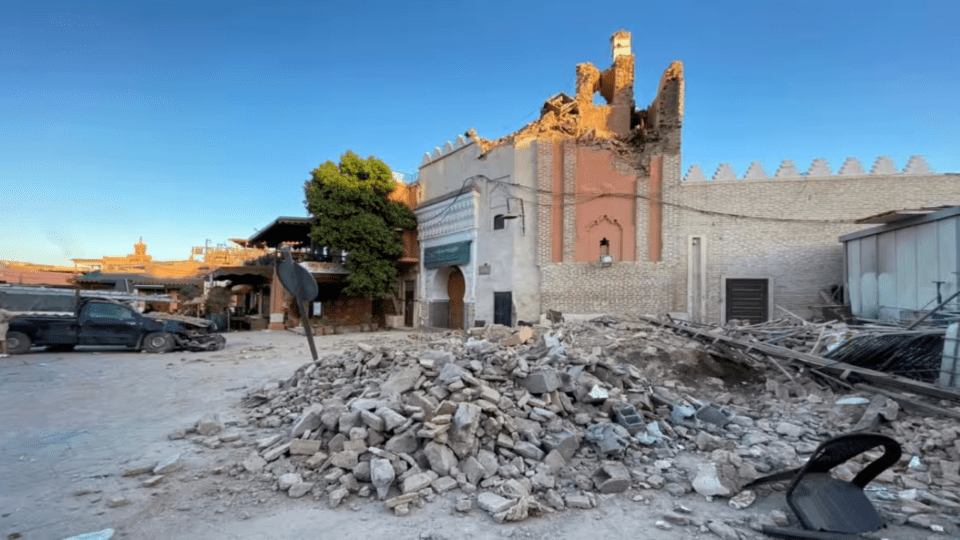In a tragic turn of events, a powerful earthquake with a magnitude of 6.8 struck central Morocco, leaving behind a trail of devastation and heartbreak. The earthquake, which occurred in the High Atlas Mountains, approximately 71 kilometers (44 miles) southwest of Marrakesh, shook the region at 23:11 local time (22:11 GMT) on Friday. This natural disaster, the most potent in over a century for this part of Morocco, has claimed the lives of at least 632 people and left 329 others injured, with 51 in critical condition.
The epicenter of the earthquake, as reported by the US Geological Survey (USGS), was located at a depth of 18.5 kilometers. The initial quake was followed by a 4.9-magnitude aftershock just 19 minutes later, further adding to the terror and chaos that unfolded.
The impact of this devastating earthquake was felt not only in Marrakesh but also in several areas to the south, resulting in widespread damage and destruction. The provinces and municipalities of al-Haouz, Marrakesh, Ouarzazate, Azilal, Chichaoua, and Taroudant were particularly hard hit. Tragically, many of the victims are believed to be in remote and isolated areas.
The Moroccan government, anticipating severe aftershocks, urged residents not to return to their homes, prompting many to spend the night outdoors. Hospitals in Marrakesh witnessed an influx of injured individuals, prompting authorities to appeal to residents for blood donations to meet the pressing medical needs.
The earthquake also wreaked havoc on parts of the historic Medina, a UNESCO World Heritage Site, and iconic landmarks. Videos shared by citizens and tourists revealed the extent of the destruction, with buildings reduced to rubble and dust. The city’s famed red walls, enclosing Marrakech’s historic old city, suffered significant damage, further intensifying the sense of loss.
Residents who experienced the tremors described feeling a “violent tremor” and witnessing “buildings moving.” Panic and shock swept through the affected areas, with children crying, parents distraught, and power and phone lines disrupted for a tense 10 minutes.
The tragic earthquake in Morocco is one of the deadliest in recent memory, reminiscent of the 2004 disaster when a 6.3-magnitude quake struck the port city of Al Hoceima, leaving approximately 630 people dead and causing extensive damage. However, this recent seismic event has surpassed that in terms of magnitude and impact.
The United States Geological Survey (USGS) issued a red alert through its PAGER system, indicating that extensive damage is likely, and the disaster’s effects are expected to be widespread. Such alerts historically necessitate national or international-level responses, underscoring the magnitude of the catastrophe.
The earthquake’s repercussions extended beyond Morocco’s borders, with neighboring Algeria also feeling the tremors. Fortunately, Algeria reported no damage or casualties resulting from the earthquake.
Leaders from around the world expressed their condolences and offered support to Morocco during this trying time. Pakistan’s Prime Minister Anwaar ul Haq Kakar extended unity and support, while Indian Prime Minister Narendra Modi conveyed his deep sorrow and readiness to assist.
As the affected areas grapple with the aftermath of this devastating earthquake, the road to recovery will be long and challenging. It serves as a stark reminder of the unpredictable forces of nature and the resilience of communities in the face of adversity.
As an independent media platform, we do not take advertisements from governments and corporate houses. It is you, our readers, who have supported us on our journey to do honest and unbiased journalism. Please contribute, so that we can continue to do the same in future.

